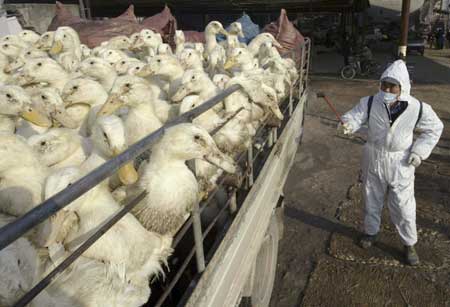Villagers in bird-flu hit Tripura lament paltry compensation
 Kalakacchya (Tripura), Apr 26 : Villagers in bird-flu hit Tripura have complained about the lack of adequate compensation from the government, even as culling of poultry continues to stave off avian influenza.
Kalakacchya (Tripura), Apr 26 : Villagers in bird-flu hit Tripura have complained about the lack of adequate compensation from the government, even as culling of poultry continues to stave off avian influenza.
"We are not satisfied with the money offered by the government. In the market, the birds costs around 120 to 130 rupees each, but we are being paid a mere 40 rupees. Apart from that, if the culling is carried out in this process, all the farms will be destroyed," claimed Sephal Saha, a villager.
Veterinary officials in Kalakacchya village said they are working to check the spread of the disease.
"We are continuing culling in ten areas. We have two mobile vans involved," said Ashok Majumder, a veterinary doctor.
Over 25,000 chicks and ducks have already been slaughtered in Tripura this month after it was hit by the H5N1 strain.
A red alert has been sounded to prohibit the import of poultry from outside the State, including neighbouring Bangladesh, which shares an 856 kilometre long porous border with Tripura.
Checkpoints have been put in place to stop the transportation of chickens and other poultry products outside the bird-flu zone.
Border guards along the India-Bangladesh border have been put on high alert.
This is the second time that the deadly bird flu virus has been detected in the state, a little more than a week after thousands of chickens were culled.
Laboratory tests have confirmed the presence of the deadly H5N1 strain of the virus in dead chickens in Tripura.
Indian officials have expressed fears that the virus might be spreading from Bangladesh.
Tripura is the second state after West Bengal in the country's east to report an outbreak of avian influenza this year.
Earlier this month, over 40,000 birds were culled in the state following an outbreak of the disease.
India, which reported its first outbreak of avian flu in 2006, has not reported any human infections yet.
The H5N1 strain of the virus has killed more than 230 people worldwide since late 2003. Health experts fear the strain could mutate into a form easily transmitted from person to person, leading to a pandemic. (ANI)